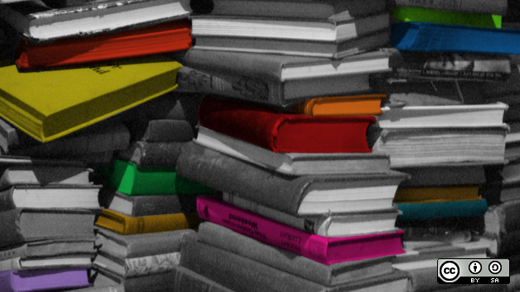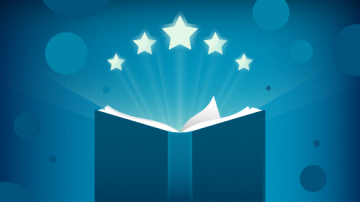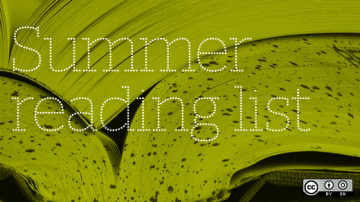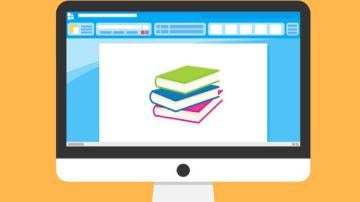Reading about technology often can build up your career. I recently shared, on Valentine's Day, how I read (what some would say is) too many books. I used to have a hard copy library that actually consumed two rooms in my house until my husband moved in. He respectfully requested space for, you know, people, and I considered a shift toward digital.
I still take up a lot of room, but now it's limited to a digital format between e-readers and my audiobook collection. I now own three e-readers, which I organize by the subject of the book, and store audiobooks across multiple devices. With that adjustment, I was able to shift my rooms of books to a mostly digital format, except for some personal favorites, pocket guides, and cookbooks.
So what makes all this reading worthwhile in an age where you can search and immediately find a site full of resources?
So let's break that question down to some simple genres.
Staying ahead of the technical and work-related curves
Every month, I usually end up with one, if not two, work-related books. For example, this month, someone told me about something I had never heard of—Istio. That alone isn't enough to pick up a book, but I've come up with a rule to determine what is worthwhile: if a topic comes up more than three times in my office and I don't know what it is, I grab a book. The reason I say "more than three times" is that, after three times, I know it's going to be part of my life in the near future, so I have to get on the train fast.
Did you know that by reading one book a week about your field, in three years you will be an expert, in five years a national authority, and in seven an international expert? That is around fifty books about technology a year. Can you handle that?
Well, I know I can't, because I tried. It gets hard to stomach that much technology all the time. But I have found that, with a slight adjustment to my routine, I can handle one book a month, and that actually puts me ahead of what I'm doing or about to do at work nearly every day. Being ahead of the curve, or at least knowledgable about what you do, is how you grow in your field, so I suggest aiming for one technical manual or work-related book a month.
Outside the box inspiration from fiction books
Since I can't handle technical books every week, I break it up with some fiction. Why? Fiction spikes a good amount of creativity to think outside of the box. I love science fiction, and I will say if I'm engrossed in a book where there's an intergalactic war or some sort of crazy battle, I am more likely to fearlessly destroy things in my environment (mostly pre-production environments, I promise). That can be good or bad, but I consider it a more chaotic good than bad. The more you destroy, the better you troubleshoot, understand how to monitor, and learn to automate the recovery in the future. Best of all, it does stimulate for more out of the box creative thinking, which can lead to better architectural or technical decisions. Fiction can be energizing and allows you to think through other worlds and other minds. I find I am affected by the character's decisions, and they stay with me. In that way, the more I read fiction, the more perspective and empathy I gain.
A great novel can make life just a touch richer than before.
Bulking up on burnout protection books
So we've touched on how technical books can push you farther in your career and day to day life, and how fiction can lead to life enrichment. I added a new genre of books recently, and I recommend that others do so as well. I call it the "personal burnout protection" collection.
This genre is for learning something completely new—how to expand your hobbies and enrich your life in a way that reminds you of how exciting it is to have interests. Here's an example: I have one friend from London, whom I get to see maybe two times a year. We talk daily on a shared chat, and one day we got in an argument about how Americans make cheese completely incorrectly—because cheese is never supposed to be orange and most certainly ever in a spray can. While I don't disagree, it did inspire me to get a book on how to make my own cheese, to prove that as an American, we can make cheese they would deem "correct." This effort led to an inside joke between us and was surprisingly fun. I am still bad at making cheese, but the joy of trying made the rest of my life feel richer.
I now lead the life of cheesemaker and, more importantly, I let the technical work I usually did after-hours slide away from me. My usual frustration of work slid away, too, as I changed hobbies, and I can say it prevented a moment of impending burnout.
A few other habits I picked up as part of this genre include soap and candle making (which I was surprisingly good at), blacksmithing (which I haven't attempted yet because of tool requirements), and gardening (which led me down a path to see what technology I can add to my yard). Each of these has led me away from doing work after hours to, instead, basically doing home science projects. It not only drove my personal growth, but it also prevented burnout and breakdowns.
A set of open source digital libraries
This three-prong strategy for reading has enriched my life and regularly helped me improve at work. One of the best parts is that much of this information is "open source" (but I really mean freely available or under Credit Commons, which are slightly different).
The most freely available choice I will first suggest is your local library. Libraries don't have a ton of funding, so I'll always suggest supporting them by getting your books there. They offer up resources for everyone in your community. And many have digital copies if you're also consolidating to e-readers.
Beyond your local library, there are fantastic libraries online that provide digital books for everyone to read:
- Project Gutenberg, which has a more wiki design, has 66,000 books available to read and has a program for you to help set up an audiobook collection by helping read the books.
- Open Library allows you to sponsor books as well as check them out for reading while attempting to archive everything they can for preservation.
Regardless of your motivation or categories of interest, use these resources to read whatever you need to keep learning and enriching your life.










4 Comments